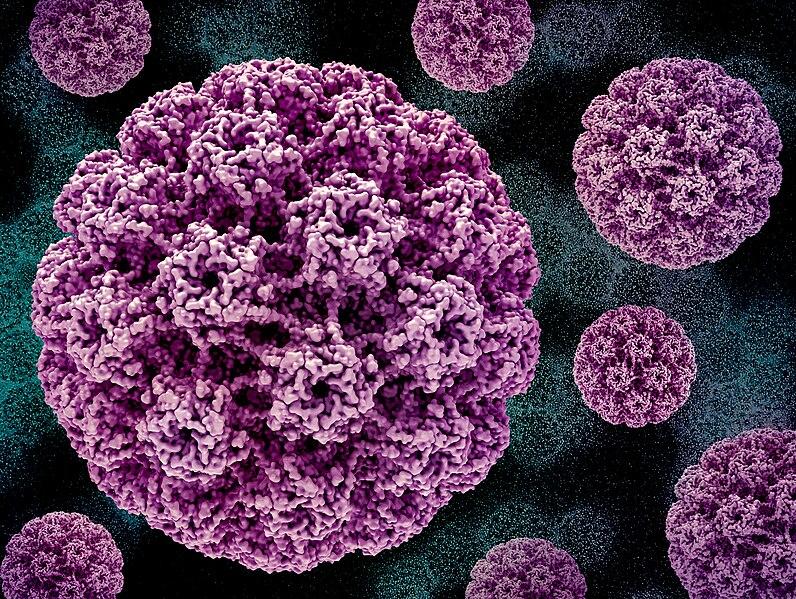Researchers Identify Rare Cancers Possibly Caused by Viruses
, by Elise Tookmanian, Ph.D.
A new study led by investigators in the Infections and Immunoepidemiology Branch (IIB) identified several rare cancers, not previously known to be caused by a virus, for which people with a compromised immune system had a higher risk, providing strong evidence that these cancers could be caused by an infectious agent. The study was published on July 2, 2024, in the Journal of the National Cancer Institute.
In order to determine if a virus causes cancer, epidemiologists look for elevated cancer rates in immunocompromised populations, because these groups are more susceptible to viral infections and any subsequent cancer. For this study, the researchers, led by Cameron B. Haas, Ph.D., M.P.H., postdoctoral fellow, and Eric A. Engels, M.D., M.P.H., branch director and senior investigator, both in IIB, used two of the largest cancer registry studies of immunocompromised individuals, the HIV/AIDS Cancer Match Study (with data on people with HIV) and the Transplant Cancer Match Study (with data on solid organ transplant recipients). For both studies, the researchers estimated the standard incidence ratio, which compares the incidence of cancer in these immunocompromised populations with the incidence in the general population. Elevated risk for people with HIV and transplant recipients was found for several rare cancers not previously shown to be caused by a virus, namely conjunctival squamous cell carcinoma (a rare form of eye cancer), sebaceous adenocarcinoma and malignant fibrous histiocytoma (both rare skin cancers), and salivary gland tumors.
Since the analysis relied on population-based registry data, the researchers were unable to account for potential confounders, such as smoking or other risk factors that could cause elevated rates of cancer. To address this limitation, the researchers conducted additional analyses within each population to test for associations between each cancer and severity of immunosuppression. Among people with HIV, those who had progressed to a diagnosis of AIDS, which indicates increased immunosuppression, had significantly greater risk of conjunctival and salivary gland tumors, adding further evidence that the rare cancers may be caused by a virus.
The cancers identified in this study merit deeper investigations to determine if they are caused by known carcinogenic viruses, such as HPV, or unknown viral agents. Additionally, future research may benefit from collaborations in sub-Saharan Africa, where the incidence of conjunctival cancer and HIV infection is high.
Reference
Haas CB et al. Cancers with epidemiologic signatures of viral oncogenicity among immunocompromised populations in the United States. J Natl Cancer Inst. 2024.
